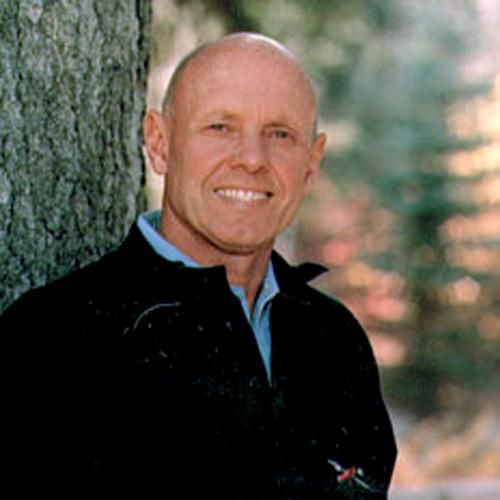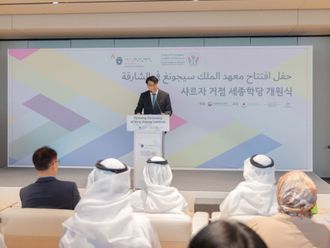A clear and present trust is one surefire way to ensure that your relationships and work interests flourish, says noted American author and motivational speaker Dr. Stephen Covey.
Trust is irreplaceable and through real action such as humility, listening and willingness to admit mistakes, a bond will grow over time cementing ties that can be extremely hard to break, said the author of The 7 Habits of Highly Effective People.
Covey spoke Tuesday at a one-day conference at the Jumeirah Beach Hotel in Dubai and advised members of the city's business community that trust is essentially the pivotal building block of any enterprise.
Trust means being honest and straight forward to co-workers or clients.
“Have the humility to say; ‘I was wrong,''' he advised delegates. “That is not weakness; that is strength.''
Building organisational trust has helped organisations see their profits mushroom more than threefold, said Covey.
To reach a position of trust, people must learn to build character, a sense of self that others can quickly grasp as trustworthy and dependable, he said. To build a strong character, a person must have integrity, maturity and what he called an abundance of mentality.
On the integrity front, Covey said that “your word is your bond, keep your commitment.''
Maturity of character, he said, is the “ability to be both courageous and considerate at the same time'', to strike a balance between having the courage to express yourself but also to be considerate enough to listen.
Too often, people are raised with a scarcity of mentality, he said, where people “want to be the high water mark'' and are too focused on what other people think, how they are viewed by others and climbing the social ladder – in other words, these people are hopelessly external in their thinking.
“Their sense of self comes from how they stack up against others,'' Covey said.
People, however, should be focused on the intrinsic or their interiors from which they can “set up a future where you learn from the past.''
To get the ball rolling, Covey suggested that cooperation is the touchstone.
Then parties can set up a “win-win performance agreement'' where partners can exchange their strengths and weaknesses to form a more competent and stronger bond. As the culture of trust grows, it becomes stronger and teaches others.
Covey said he was speaking to a human resources worker at a large hotel chain and she told him that she was never “raised to treat people with kindness and respect'' but after working in the hotel chain's corporate culture, she start treating people better.
By treating people with respect, people respect themselves, a major message that Covey is instilling in his large family, he said, especially his 48 grandchildren.
“I'm trying to train my grandchildren with the spirit of service,'' he said. “Little by little, they are getting into this. This is the family mission statement: We serve God by serving other people.''
Covey said that businesses must realize that trust is a key ingredient today in a world that is moving faster than it ever has in a push to stay ahead of the competition.
In a film shown to the crowd and narrated by his son Stephen W. R. Covey, it was reported that American billionaire Warren Buffet acquired McLean, a $23 billion subsidiary of Wal-Mart, after only a two-hour meeting followed by 29 days of paperwork, all done without due diligence that normally would have taken many more months.
Covey called it an example of businesses using a “high-trust'' operating mode which “turns trust into the greatest dividend, otherwise it becomes a tax.''
According to study by Covey, in a business where trust is non-existent, there is the equivalent of an 80 per cent tax on resources because of an “extremely dysfunctional environment and toxic culture with open criticism, sabotage, lawsuits and criminal behaviour.''
The antithesis, he said, is the corporation with world-class trust that is returning a 40 per cent dividend due to “high levels of synergy, effortless communication and transparent relationships with all stakeholders.''
He cited chronic problems that contribute to low trust in the workplace as no clear purpose or vision; underused talent and potential as well as bureaucratic misaligned systems.
Great business leaders clarify purpose, unleash talent and align systems, he said, to restore trust at its highest level, Covey said.
Covey stresses on trust and humility
Covey stresses on trust and humility













